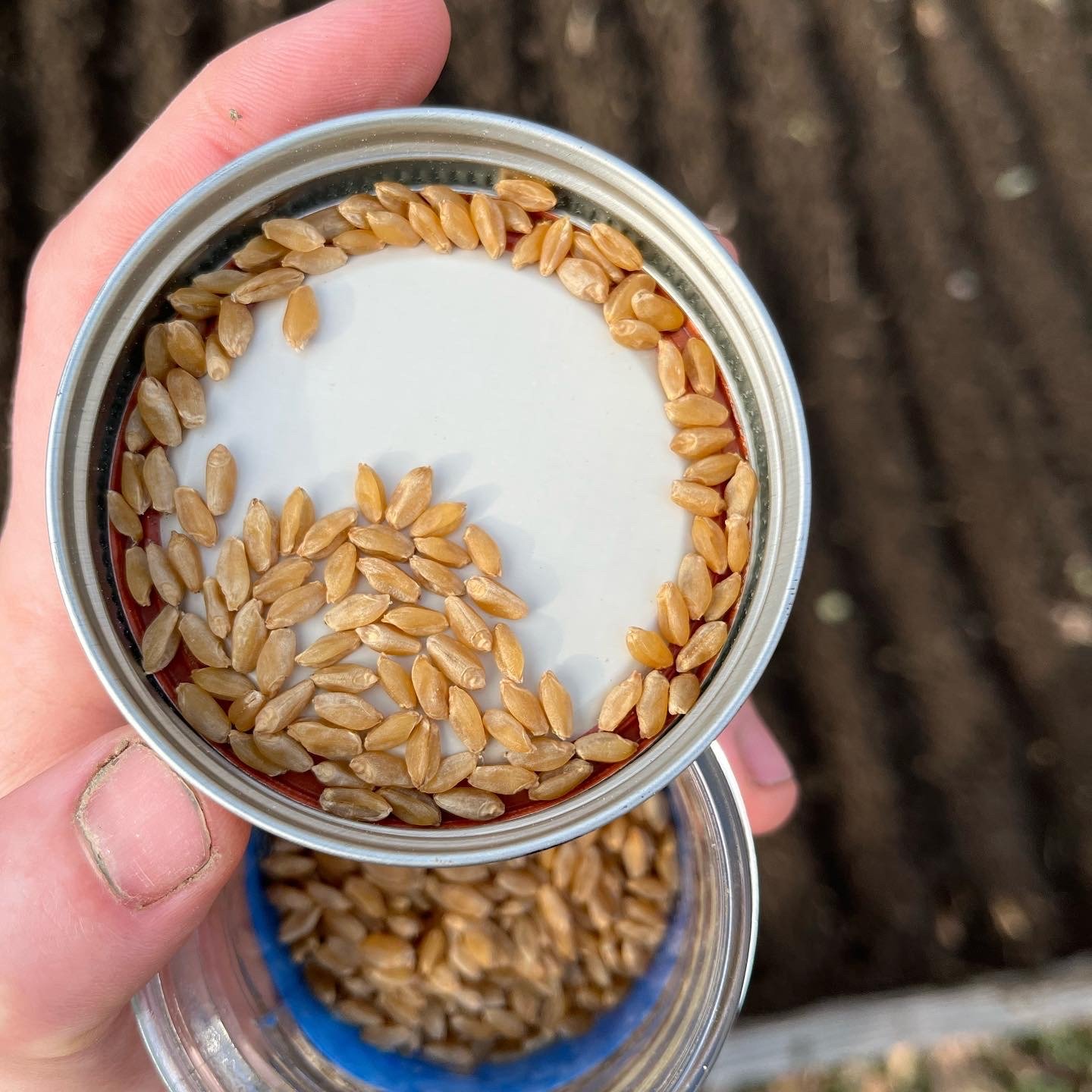 Image 1 of
Image 1 of


Bean, Black Turtle
Product Description: (Phaseolus vulgaris) Black Turtle — better known as the common black bean or frijoles negros — originated in South America and was introduced to the United States in the late 1700s. However, it wasn’t until the mid-1800s that this variety gained much of its popularity. The black color that gives this bean its name is actually an exceptionally dark shade of purple created by the same natural pigment found in blueberries, grapes, and red cabbage. Its dense, meaty texture also makes Black Turtle a well-suited variety for vegetarian cuisine. We have found this variety to be incredibly resilient, hassle-free, and high-yielding. Bush habit. Open-pollinated. 50 seeds per packet.
Growing Information: After all danger of frost has passed, direct sow seeds every 3-4 inches in rows spaced 2 feet apart. Avoid handling the plants in wet conditions to prevent the spread of fungal pathogens. At the end of the growing season, allow the entire plant to die back and dry until the bean pods are brown and brittle. Once dry, harvest the pods and crack them open. Sort out any beans that are damaged or showing signs of rot, then store your harvest in a glass jar or other airtight container until use. 95 days to maturity.
How To Save Bean Seeds
Allow the plant to dry out completely. Mature pods will be brown and brittle. Make sure that your plants are receiving adequate airflow to prevent excessive moisture and mold growth throughout the drying process. However, a small amount of mildew spotting on the outside of drying pods is completely normal and has no reason for concern. Once dry, harvest the seed pods and crack them open. Sort out any damaged, misshapen, or rotting beans. Continue the drying process if necessary then store them in a cool, dry place.
Product Description: (Phaseolus vulgaris) Black Turtle — better known as the common black bean or frijoles negros — originated in South America and was introduced to the United States in the late 1700s. However, it wasn’t until the mid-1800s that this variety gained much of its popularity. The black color that gives this bean its name is actually an exceptionally dark shade of purple created by the same natural pigment found in blueberries, grapes, and red cabbage. Its dense, meaty texture also makes Black Turtle a well-suited variety for vegetarian cuisine. We have found this variety to be incredibly resilient, hassle-free, and high-yielding. Bush habit. Open-pollinated. 50 seeds per packet.
Growing Information: After all danger of frost has passed, direct sow seeds every 3-4 inches in rows spaced 2 feet apart. Avoid handling the plants in wet conditions to prevent the spread of fungal pathogens. At the end of the growing season, allow the entire plant to die back and dry until the bean pods are brown and brittle. Once dry, harvest the pods and crack them open. Sort out any beans that are damaged or showing signs of rot, then store your harvest in a glass jar or other airtight container until use. 95 days to maturity.
How To Save Bean Seeds
Allow the plant to dry out completely. Mature pods will be brown and brittle. Make sure that your plants are receiving adequate airflow to prevent excessive moisture and mold growth throughout the drying process. However, a small amount of mildew spotting on the outside of drying pods is completely normal and has no reason for concern. Once dry, harvest the seed pods and crack them open. Sort out any damaged, misshapen, or rotting beans. Continue the drying process if necessary then store them in a cool, dry place.
Product Description: (Phaseolus vulgaris) Black Turtle — better known as the common black bean or frijoles negros — originated in South America and was introduced to the United States in the late 1700s. However, it wasn’t until the mid-1800s that this variety gained much of its popularity. The black color that gives this bean its name is actually an exceptionally dark shade of purple created by the same natural pigment found in blueberries, grapes, and red cabbage. Its dense, meaty texture also makes Black Turtle a well-suited variety for vegetarian cuisine. We have found this variety to be incredibly resilient, hassle-free, and high-yielding. Bush habit. Open-pollinated. 50 seeds per packet.
Growing Information: After all danger of frost has passed, direct sow seeds every 3-4 inches in rows spaced 2 feet apart. Avoid handling the plants in wet conditions to prevent the spread of fungal pathogens. At the end of the growing season, allow the entire plant to die back and dry until the bean pods are brown and brittle. Once dry, harvest the pods and crack them open. Sort out any beans that are damaged or showing signs of rot, then store your harvest in a glass jar or other airtight container until use. 95 days to maturity.
How To Save Bean Seeds
Allow the plant to dry out completely. Mature pods will be brown and brittle. Make sure that your plants are receiving adequate airflow to prevent excessive moisture and mold growth throughout the drying process. However, a small amount of mildew spotting on the outside of drying pods is completely normal and has no reason for concern. Once dry, harvest the seed pods and crack them open. Sort out any damaged, misshapen, or rotting beans. Continue the drying process if necessary then store them in a cool, dry place.





